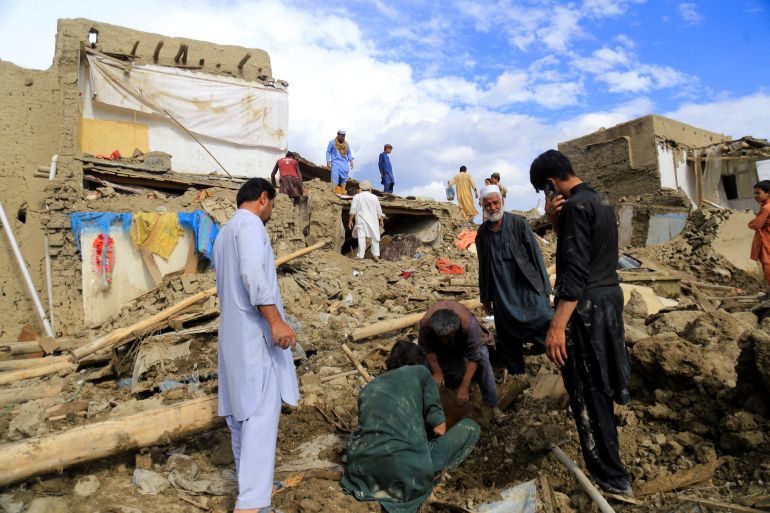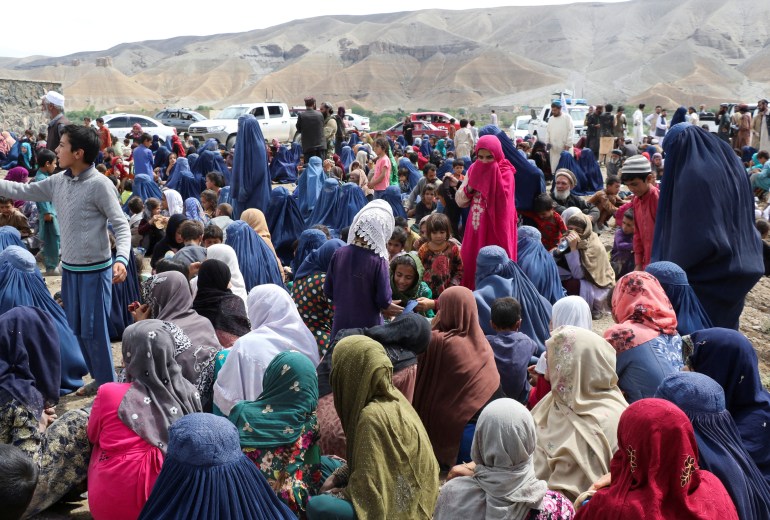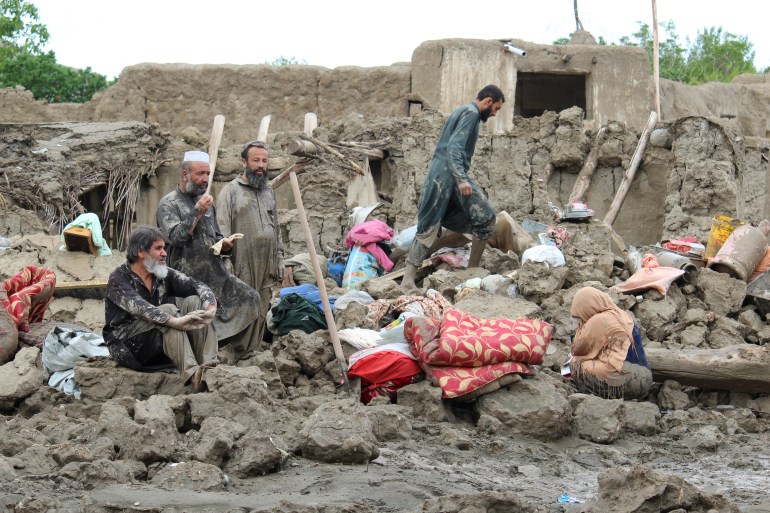Afghanistan reels from deadly flash floods and landslides
Martin Griffiths said donors should immediately provide Afghanistan with $770m to survive the coming colder months.

Several provinces across the eastern, central, southern and western regions of Afghanistan have been hit by heavy rains, resulting in flash floods and landslides that have caused the deaths of more than 180 people, displaced at least 8,000 others and damaged at least 3,000 houses.
According to the United Nations Office for the Coordination of Humanitarian Affairs, the provinces of Kunar, Laghman, Logar, Wardak, Nangarhar, Nuristan, Paktia and Parwan have been the hardest hit.
Keep reading
list of 3 itemsPhotos: Deadly Afghanistan floods another challenge for Taliban
How has a year of Taliban rule changed Afghanistan?
The UN OCHA – in its latest update – said that in this month alone, at least 118 people died due to flash floods. Several provinces of Afghanistan have faced heavy rains and floods in recent weeks. At least 20 people have been killed and 30 others injured in Logar province.
Afghanistan has been reeling from natural disasters this year, including a drought and a devastating earthquake that killed more than 1,000 people in June. The nation has been largely cut off from the international financial system since the Taliban took over a year ago.
Mullah Sharafuddin Muslim, deputy minister of state for disaster management of the Taliban government, told reporters that the floods have caused major loss of life and assets.

Speaking at a news conference on August 27, Mullah Abdul Latif Mansour, acting minister of energy and water, said that “750 cisterns, 329 small dams, and 441 major water channels were damaged in recent flooding across the country.”
The acting minister of agriculture, irrigation and livestock, Mullah Ataullah Omari, said almost 600,000 acres (24,281 hectares) of land remains flooded and “cannot be used”. The Taliban officials said that the country is currently experiencing a “humanitarian crisis” and appealed for more international aid.
Feroz Khan, resident of Khoshi district in Logar province, told Al Jazeera that four days ago he was at home with his family when the floods hit.
“We were just having lunch when the flood struck. We were helpless and did not know what to do. The walls of my house crumbled, and water poured in my home, and took away our things,” he said.
“We forgot everything and just tried to run out and save our lives,” he said, adding that the deluge swept away livestock as well.
A day later, they managed to find shelter at their relatives’ home. “Our mud house is unlivable, and we don’t know when we will manage to go back, if at all,” he said.

Meanwhile, on Monday, the UN humanitarian chief urged donors to restore funding for development in Afghanistan that was frozen when the Taliban took last August, warning that six million people were at risk of famine.
Martin Griffiths told the United Nations Security Council that Afghanistan faced multiple crises – humanitarian, economic, climate, hunger and financial – and that donors should immediately provide $770m to help Afghans survive the coming colder months.
Conflict, poverty, climate shocks and food insecurity “have long been a sad reality” in Afghanistan, but he said what makes the current situation “so critical” is the halt to large-scale development aid.
“Poverty is deepening, the population is still growing, and the de facto authorities have no budget to invest in their own future. It is clear to us that some development support needs to be restarted,” Griffiths said.
More than half of Afghanistan’s 39 million people need humanitarian help and six million are at risk of famine. More than a million children are “estimated to be suffering from the most severe, life-threatening form of malnutrition” and could die without proper treatment, he said.
The Taliban has not been formally recognised by any foreign governments and is still subjected to international sanctions, which the UN and aid groups say are now hindering humanitarian operations in the country.